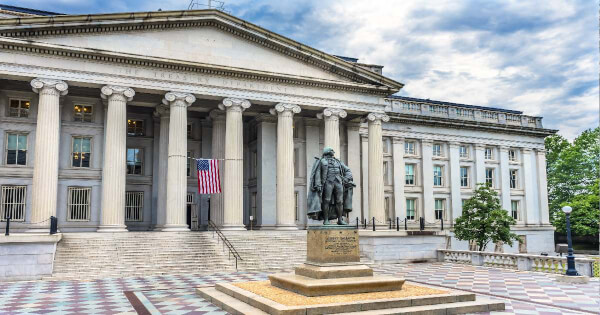U.S. House Committee Advances Anti-CBDC and Stablecoin Regulation Bills
Luisa Crawford Apr 04, 2025 03:59
The U.S. House Financial Services Committee has advanced two significant pieces of legislation related to digital currencies, including a bill aimed at blocking the issuance of a central bank digital currency (CBDC) by federal agencies.

The U.S. House Financial Services Committee has advanced two significant pieces of legislation related to digital currencies, including a bill aimed at blocking the issuance of a central bank digital currency (CBDC) by federal agencies. The legislation, known as the CBDC Anti-Surveillance State Act, was approved in a 27–22 vote during an April 2 markup session.
The bill, reintroduced by Representative Tom Emmer (R-Minn.), seeks to prohibit the Federal Reserve and other federal institutions from issuing or utilizing a CBDC. Emmer characterized the move as a defense of financial privacy and individual freedoms, arguing that a digital dollar could enable excessive government surveillance of Americans’ financial activity.
“This bill has 114 cosponsors and support from a broad coalition, from the Independent Community Bankers Association to the Blockchain Association,” Emmer stated during the session.
The bill passed out of the House during the previous Congress by a 216–192 vote, but it remains to be seen whether it will receive sufficient support this term to move through both chambers and reach the president’s desk.
Stablecoin Legislation Also Moves Forward
Alongside the anti-CBDC bill, the committee also approved a separate bill regulating payment stablecoins, signaling lawmakers' intent to establish a clearer legal framework for privately issued digital assets.
The stablecoin bill would set regulatory standards for issuers and potentially offer more legitimacy to dollar-pegged cryptocurrencies operating within the U.S. market.
Political Context and Future Outlook
The CBDC issue has become a partisan flashpoint, with many Republican lawmakers voicing strong opposition to the idea of a U.S.-issued digital dollar. Emmer has linked his bill to former President Donald Trump’s January 2024 executive order, which banned the issuance and use of a CBDC in the United States. A companion bill was introduced in the Senate by Senator Ted Cruz (R-Texas) on March 26, signaling coordinated GOP efforts to block CBDC development at the federal level.
Federal agencies, including the Federal Reserve, have continued to research CBDCs, emphasizing their potential to modernize payments infrastructure. However, critics argue that such a system could jeopardize financial privacy and give the government too much control over individual transactions.
Image source: Shutterstock.jpg)

